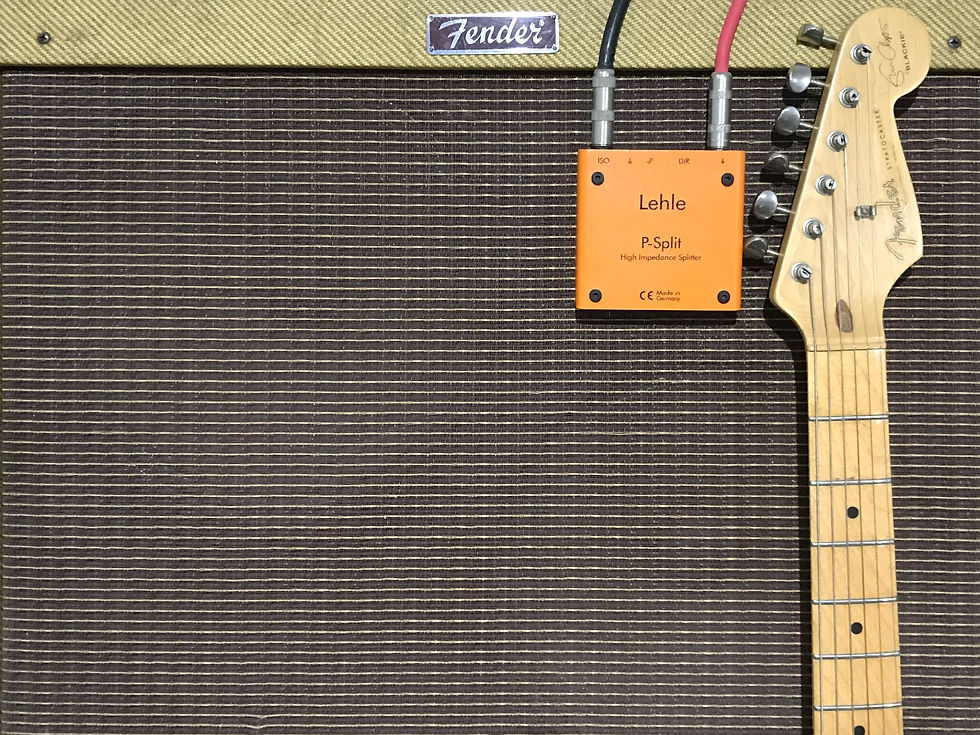Copyright obligations.
- Roy Fry

- Mar 25, 2020
- 3 min read

At the moment Phil and l are recording a Christian artist by the name of Nick J Holmer. I've been home in my little cheap project studio with half the equipment broken or desperately needing servicing, but l can still put down the guitar parts for the project. l just have to be creative on how l achieve my goals.
At the moment l have laid down 3 guitar rhythm tracks and 1 bass guitar trck for 3 songs out of 5 songs for an Ep.
Originally we had 3 songs planned for our project, however, it would be better for the artist " Nick J Holmer" to include a further 2 songs that would produce a small Ep for him, he can then use the end product to sell later or use the EP as a demo.
So what could l be entitled to from this project ( in other words 'what's in it for me')?
Am l entitled to anything from this project?
What about the time I've put into this project, by creating the hook lines and rhythms?
Well, apparently l am entitled to a small portion of the copyrights.
There are 2 parts to the copyright splits.
You have sound copyright and
there is the composition copyright.
Sound copyright royalties include:
Recording Studios
Singers
Musicians
Composition copyright royalties include:
Composers
Publishers
How does it work?
Since I'm using my own recording studio and equipment plus my personal guitar, pedals, and amplifier on the project (without receiving any payment for my services), then l am legally entitled to a portion of the sound copyright royalties.
This leads me into the negotiation table were l could ask for either
payment,
percentage of sound copyright royalties (or both) plus.
Since my equipment is producing some of the music sounds for the product, l am also entitled to a portion of the sound copyright royalties.
In addition to this my entitlement also can include:
My creativity - intellectual property
This comes under composition copyright. If l am instructed to play the guitar parts as directed by the composer, then l have not contributed to the song, as I'm being told what to play. However, if l start making any changes to the song without any guidance, then that comes under intellectual property, and then I'm entitled to a percentage of the composition copyright.
So if anyone is putting their ideas into a song, then it doesn't matter who contributes to making a song, they all are legally eligible for a portion/percentage of the profit from a song.
Since l have put my creative ideas into Nick J Holmer's 3 songs so far, and have not been instructed what to play, then l can be entitled to a percentage of the composition copyright too. No matter how small my creative input is, it is all about intellectual property.
Conclusion
Always make sure you have a simple clear contact that allows everyone who is involved with the creative process of a song or other materials to know what their role is.
Music is a business, so anyone who is not directly associated with the project needs to be informed about the legalities, of that 'workplace' and if they have contributed to the finished project. This is especially relevant as a song you might have written all of a sudden becomes a hit. So remember, music is a business and a percentage war can erupt. By making everyone's position clear at the start will save the heartache and regrets later on, as has been the case of many successful artists. For example John Fogerty from Creedence Clearwater Revival.
Reference
Robley, C., Majewski, G., Cool, D., Hazard, B., Sobhraj, J., Majewski, G., … Majewski, G. (2020, March 6). Copyright Your Music and Compositions: The Definitive Guide. Retrieved March 19, 2020, from https://diymusician.cdbaby.com/music-rights/copyright-for-musicians/
Clara. (2018, November 14). Understand Copyright Laws for Music Recording in a Studio. Retrieved March 18, 2020, from https://blog.wonder.legal/en/personal/miscellaneous/how-to-determine-music-copyright-when-recording-in-a-studio



Comments